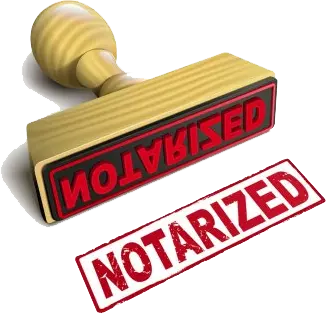Ohio Online Notary Special
All new users recieve 30% off for 1 month on subscription plans
$25
/Document
- Fast E-Notary Online
- 100% Completion Guaranteed
- Download Your Document Easy
- Fast Sign Up
Everything You Need to Know About Getting Notarized Online in Ohio
Introduction
Online notarization has revolutionized the way legal documents are authenticated, offering convenience and flexibility for Ohio residents. As technology continues to advance, remote online notarization (RON) has become an increasingly popular option for individuals and businesses seeking efficient document certification.
Understanding Online Notarization in Ohio
Legal Framework
Ohio was ahead of the curve in embracing online notarization, passing legislation that fully supports remote online notarization. The state’s laws, specifically Ohio Revised Code Section 147.60, provide a comprehensive legal framework for electronic notarization, ensuring the validity and security of digitally notarized documents.
Key Benefits of Online Notarization
– Convenience of notarizing documents from anywhere
– Time-saving alternative to traditional in-person notarization
– Accessibility for individuals with mobility challenges
– 24/7 availability through certified online platforms
– Reduced travel time and expenses
Requirements for Online Notarization in Ohio
Eligibility Criteria
To use online notarization services in Ohio, you must:
– Be at least 18 years old
– Have a valid government-issued photo ID
– Have reliable internet connection
– Possess the document that needs notarization
– Be able to appear via audio-visual technology
Necessary Technology
– High-speed internet connection
– Computer or mobile device with camera
– Webcam or built-in device camera
– Microphone
– Government-issued photo identification
Step-by-Step Process for Online Notarization
1. **Choose a Certified Online Notary Platform like Eonlinenotary**
Select a platform approved by the Ohio Secretary of State.
2. **Create an Account**
Register on your chosen platform by providing personal information and verifying your identity.
3. **Upload Your Document**
Scan or upload the document requiring notarization in a clear, readable format.
4. **Verify Your Identity**
Complete identity verification through:
– Knowledge-based authentication
– Government ID verification
– Live video conference with a commissioned online notary
5. **Complete the Notarization**
Sign the document electronically during the live video session with the notary.
Cost Considerations
Online notarization fees in Ohio typically range from $15 to $50 per document, depending on the complexity and the specific service provider. Some factors affecting pricing include:
– Number of signatures required
– Document complexity
– Additional certification needs
Important Legal Considerations
– Electronically notarized documents have the same legal weight as traditional notarizations
– All online notarizations are recorded and securely stored
– Ohio law requires notaries to follow strict identity verification protocols
– Documents must meet state-specific requirements for electronic notarization
## Potential Limitations
While convenient, online notarization may not be suitable for:
– Certain real estate transactions
– Some court documents
– Documents requiring physical original signatures
– Certain specialized legal documents
Resources and Official References
Official State Resources
– [Ohio Secretary of State Notary Division](https://www.sos.ohio.gov/business/notarycomm)
– [Ohio Revised Code – Notary Public Regulations](https://codes.ohio.gov/ohio-revised-code/chapter-147)
## Security and Privacy
Reputable online notarization platforms employ:
– End-to-end encryption
– Secure document storage
– Compliance with state and federal privacy regulations
– Multi-factor authentication
– Detailed audit trails
## Conclusion
Online notarization in Ohio offers a modern, efficient alternative to traditional notary services. By understanding the process, requirements, and choosing a reputable platform, residents can easily authenticate their important documents from the comfort of their home or office.
**Disclaimer:** Always consult with a legal professional for specific document authentication needs and verify the most current regulations with the Ohio Secretary of State.

More Resources :

Discount Traditional Notary Stamp 75% Off
This stamp does not come with ink. You will need a separate, water-based ink pad. You can purchase one here: Stamp Ink Pad
Ohio Notary Public FAQ
1. What are the qualifications to become a notary public in Ohio?
To become a notary public in Ohio, you must meet the following requirements:
- Be at least 18 years old.
- Be a legal resident of Ohio or an attorney admitted to practice law in Ohio with a primary practice in Ohio.
- Not be disqualified due to conviction of or a guilty or no contest plea to a disqualifying offense. These include sexually oriented offenses, offenses of violence, theft/fraud offenses, or any other felony directly related to the role of a notary public.
2. What training and testing is required to become a notary public in Ohio?
New notary applicants must complete a three-hour education course and pass an exam. Existing notaries must take a one-hour class to renew an active commission.
3. What is the difference between an electronic notarization and an online notarization?
- Electronic Notarization: This involves a notary using an electronic seal and signature on a digital document. The signer must be physically present before the notary.
- Online Notarization: This allows a notary authorized to perform online notarizations to complete a notarial act when the signer appears via audio-visual technology. The notary must be physically located in Ohio, but the signer may be located elsewhere.
4. Can a notary public refuse to perform a notarization?
Yes, a notary public can refuse a notarization in certain circumstances. These include:
- The signer does not appear before the notary.
- The signer cannot be properly identified.
- The signer is unwilling to swear or affirm the document’s contents for a jurat.
- The signer appears mentally incapable of understanding the act or is being coerced.
- The document is blank or incomplete.
- The notary has a conflict of interest.
- The notary knows the transaction is fraudulent.
5. What are the steps involved in performing a notarial act?
- Personal Appearance: The signer must personally appear before the notary, either in person or via audio-visual technology for online notarizations.
- Document Verification: The notary must review the document for completeness and proper notarial certificate language.
- Signer Identification: The notary must verify the signer’s identity using personal knowledge, government-issued photo ID, or other satisfactory evidence.
- Willingness and Awareness: The notary must ensure the signer understands the document and is willing to sign it without coercion.
- Notarial Act Completion: The notary performs the required act, either an acknowledgment or a jurat.
- Notarial Certificate Completion: The notary completes the certificate with the required information, including their signature, seal, venue, date, and commission expiration date.
6. What are the fees associated with notarial acts?
Notaries may charge $5.00 per act for traditional and electronic notarizations. The fee for online notarizations can be up to $25.00. Travel fees may be charged if agreed upon beforehand.
7. What are some common prohibited acts for notaries?
Some prohibited acts for Ohio notaries include:
- Notarizing their own signature
- Performing an act with a conflict of interest
- Certifying a document as an original or true copy
- Notarizing an incomplete document
- Altering a document after notarization
- Taking an acknowledgment when an oath is required
- Charging excessive fees
8. What are the consequences of violating Ohio notary laws?
Notaries who violate Ohio law may face disciplinary action, including commission suspension or revocation. They may also be subject to fines and imprisonment.

